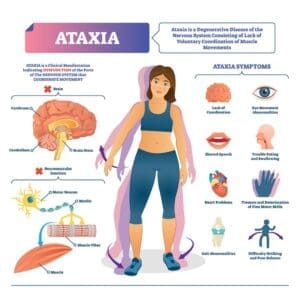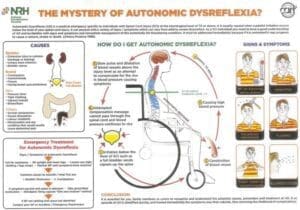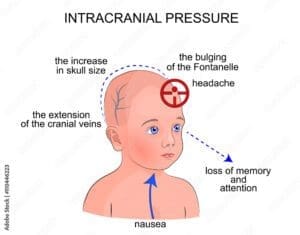TBI: Meaning, Importance, and Hope
The Philadelphia Phillies‘ partnership with Team Foster and Warrior Canine Connection to bring a new service pup to the Phillies for training reminds us of the importance of learning about and addressing treatment for traumatic brain injury (TBI) in Veterans.
TBI was the signature war wound of the Operation Enduring Freedom Afghanistan (OEF) and Operation Iraqi Freedom (OIF) wars. In Council for Relationships’ course on Understanding Military Culture and Mental Health Treatment, my co-facilitator, Courtney Ragin, LMFT, and I teach clinicians about the consequences for veterans of receiving and living with a TBI.
Read on to learn the answers to the following, and more:
- What is a TBI?
- Why should mental health therapists be concerned about TBI?
- Is there hope for folks with a TBI?

Ataxia can result from a TBI, such as a concussion. It can also be a result of progressive diseases, such as multiple sclerosis, that are unrelated to TBI.
What is TBI? It’s more than just the football brain injury name.
TBI is defined as a blow or knock to the head that interrupts the brain’s normal functions, an injury from trauma that results from some kind of external force.
An external force could come from the head being struck by an object or striking an object, the brain undergoing an acceleration/deceleration movement without direct external trauma to the head, a foreign body penetrating the brain, or forces generated from events such as a blast or explosion, or other unknown forces. The injury could cause a person to lose consciousness for a short or a long period of time and include a decreased level of consciousness, a loss of memory for events immediately before or after the injury, any alteration in mental state at the time of the injury (confusion, disorientation, slowed thinking, and so on) or neurological deficits such as a weakness, loss of balance, change in vision, weakness/paralysis, sensory loss, aphasia, and so on that may or may not be transient. When it is a mild injury, it is often called a concussion.
Some 80 to 85% of TBI events tracked by the United States Department of Defense happen at bases within the country, often because of traffic or training accidents. Other causes in the military include blasts, bullets, fragments of material, falls, car or truck crashes, sports injuries, or assaults. In combat blasts are the leading cause of TBI, often from improvised explosive devices (IEDs).

Autonomic Dysreflexia (AD) is a life-threatening emergency sometimes brought on by a TBI.
Why is TBI of concern to therapists?
Someone who has suffered a TBI is more likely to have depression, Post Traumatic Stress Disorder (PTSD), or both. They are vulnerable to a higher risk of domestic violence. The risk or precipitating factors also include a loss of sense of self following the TBI, other psychiatric disturbances, or both. TBI often presents overlapping symptoms with PTSD.
In the long term, TBI patients can experience temporary gaps in memory, irritability, depression, anxiety, and trouble sleeping, among other issues.
The following could be physical signs of TBI:
- Balance problems
- Dizziness
- Fatigue
- Headaches
- Nausea or vomiting
- Sensitivity to light
- Sleep disturbances
- Visual disturbances
TBI could also lead to the following mental health concerns:
- Anxiety
- Attention problems
- Concentration problems
- Depression
- Difficulty finding words
- Gaps in memory
- Irritability
- Mood swings
- Slowed thinking
These symptoms impact relationships in the family between the vet and their partner(s), children, and other family members. In addition, symptoms can worsen.

Sometimes a TBI can cause growing pressure inside your skull. This dangerous condition is called increased intracranial pressure (ICP).
Hope: Brain trauma recovery and more.
Anecdotal and research studies point to the effectiveness of service dog training programs like the partnership of Canine Warriors Connection, Team Foster, and the Philadelphia Phillies, to help Veterans address their TBI symptoms. CFR therapists, psychologists, and psychiatrists, through the Operation Home and Healing program, also work with veterans with TBI concentrating on ways for these veterans to better manage the impact of their TBI on their lives and the lives of their families. The Operation Home and Healing fee subsidy and Headstrong Project underwrite most or all of the costs of providing therapy to Veterans and their family members for specified periods of time.
To find a therapist who understands how TBI affects veterans, go to our Operation Home & Healing webpage. We are committed to working to improve the mental health of veterans and their families in Pennsylvania and New Jersey.
If you have a TBI and would like to learn more about the condition click here. If you are in immediate need, you can also contact the Veterans Crisis Hotline at (800) 273-TALK (8255) or the National Veterans Foundation Hotline at (888) 777-4443.

Dr. Nancy Isserman, MSW, (pictured here), has dedicated her career to tackling the mental health needs of Veterans and their families.
About the Author
Nancy Isserman, MSW, PhD, is Director of Operation Home and Healing, and the Co-Director of the Transcending Trauma Project. She is also co-author of Transcending Trauma: Survival, Resilience and Clinical Implications in Survivor Families.
If you have questions about supporting the mental health of Veterans’ families, you may reach Dr. Isserman at nisserman@councilforrelationships.org or 215-395-3140 ext. 3133.
See our Therapist & Psychiatrist Directory to find a CFR therapist or psychiatrist near you.
About Operation Home & Healing
CFR’s Operation Home and Healing (OHH) provides counseling for active-duty service members, members of the National Guard and Reserves, veterans of all eras (regardless of their characterization of discharge or combat status), and their spouses.
Click here to learn more about OHH.
More from CFR
“My Name is Tiger”: Navigating the Road to Recovery After Acute Injury
